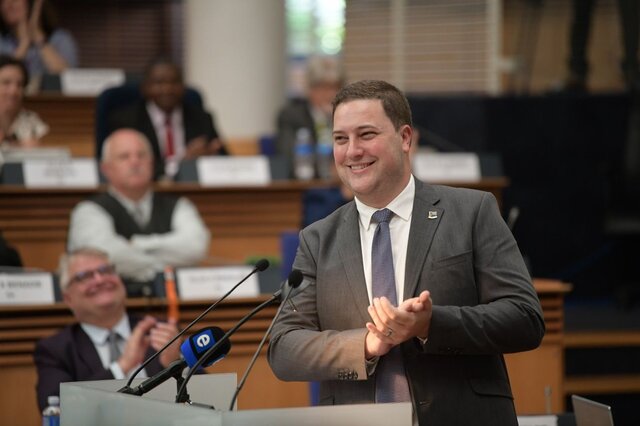Cape Town — Cape Town mayor, Geordin Hill-Lewis, has announced that the City of Cape Town (CoCT) is putting measures in place to end load shedding and optimise the city’s energy use.
Hill-Lewis was speaking at the launch of the municipality’s new energy strategy in Cape Town where he said, in the short term, the mayor said the city targeted beating the first four stages of load shedding by 2026, EWN reported.
He added that the new energy strategy document dealt in detail with the specific measures to end power cuts, among other things. The document was the blueprint for the city moving away from Eskom’s dependency and towards a more sustainable and secure future.
“All of this will be backed by a future fit municipal electricity service, with regular and proactive upgrades to our infrastructure, and ample support for Capetonian residents and businesses to make the most of the opportunities in this fast-changing energy market.” Hill-Lewis said.
Commitment made, and now commitment met:
We said we would let residential households earn cash for power from their solar PV generation systems. Today, Cape Town has officially become the first city to enable this. 🔋👏
We started with businesses, and now households too, can… pic.twitter.com/mTf15elJS3
— Geordin Hill-Lewis (@geordinhl) February 12, 2024
As reported by News24, Cape Town residents can register to sell energy back to the City by 8 March, with their new Cash for Power Programme. Residents with rooftop solar power energy can now sell their excess energy back to the municipality’s grid, and in turn, will be reimbursed by having their municipal bill credited and, once the utility bill is credited to zero, the city will start paying out cash to residents.
“I want to specifically today, invite all residential customers in the city to take advantage of our feed-in tariff by signing up,” he said. “These customers can offset their entire municipal account, and if they still rack up a credit, they can get that back in cash,” he said.
The City’s energy procurement programme includes a tender for 500MW of dispatchable energy, 200MW of embedded independent power, and the possibility of a 60MW solar-PV farm to be installed in Somerset West. Hill-Lewis said that there is “no time to waste” because the energy crisis is “strangling” the economy.
I really shudder to think how near-impossible it is to run any kind of electricity-intensive, machinery-intensive, manufacturing-intensive business in South Africa today with Stage 6 load shedding. It is apparent that plans to end load shedding at a national level have taken longer than “envisaged or promised”, Hill-Lewis said.
Follow African Insider on Facebook, Twitter and Instagram
Picture: X/@geordinhl
For more African news, visit Africaninsider.com
Compiled by Matthew Petersen


